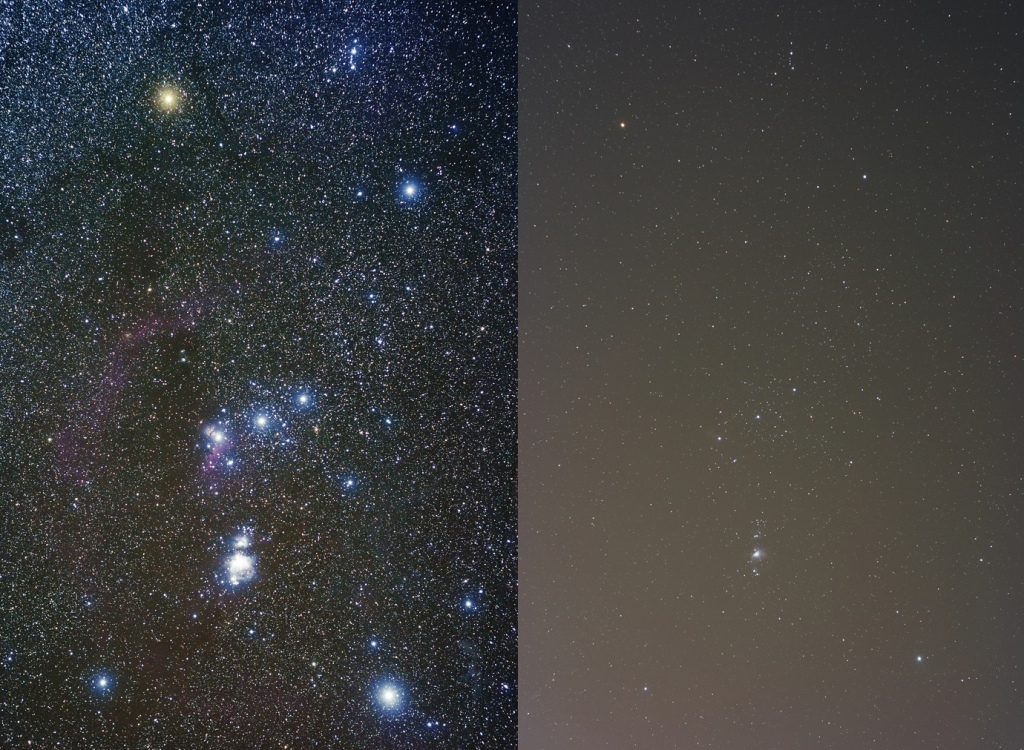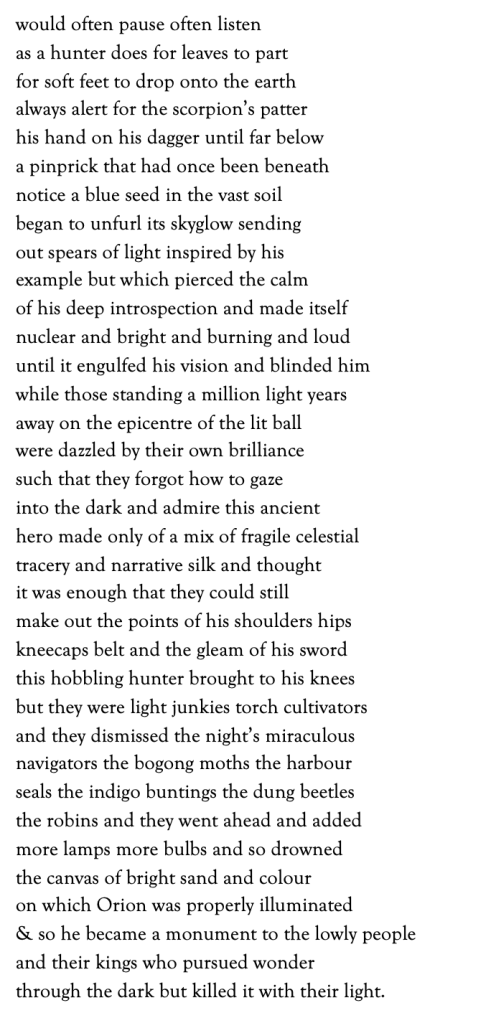
under license https://creativecommons.org/licenses/by/2.0/
ORION

commentary
This year’s interminable winter was made worse in February when everyone in my house caught a horrible cough. As the first to fall ill, I was the first to recover, and so it was left to me to give the dog her evening walks alone. It was on one of these dark evenings, usually overcast and starless, that there was a gap in the clouds and I glimpsed the constellation of Orion low over the rooftops.
It happened to be the week we were studying Shelley’s ‘Ozymandias’, that wonderful metaphor of change, of the erosion of monuments by deep time and weather. I had that image tucked in my back pocket as I walked, the mighty statue cut down to his shins, and then there was Orion’s glimmer, an ancient hero commemorated in the stars. Because of the way the stars fall, he is always depicted from the knees up, and that made it a neat dovetailing of the two ancient stories. As I walked under the streetlights, struggling to make out the belt, the shoulders, the dagger and the bow, I thought about how different the constellation of Orion must have appeared thousands of years ago, about how the darkness has been eroded by modern, human, light sources.
At home, I found some excellent resources showing Orion in differing light pollution levels, and was surprised to see that rather than Orion himself being more luminous, the background canvas of the night sky was what glowed brighter in the darkness, a shimmering and softly multicoloured bed of sand backlighting the constellations, that would surely have captivated our ancestors. And presumably not only them – what about the animals?
I found several species that use the stars to navigate, from moths and dung beetles to seals and birds. Sadly light pollution is harming them. Our human influence is inescapable in so many areas of their lives, but in seeking to dominate the night sky as well we have attacked an important refuge and made it much harder for many species to survive. It’s another nail in the coffin alongside habitat loss, rising temperatures, air pollution, water pollution, noise pollution, disease and extreme weather. But we shouldn’t forget that we humans have also lost something in our desperation to own the night: our connection to the wonder of the dark sky.
You will find a Google word doc accessible version of this feature here.
With thanks to the Poetry School.

Rae Howells is a poet, journalist, academic and lavender farmer from Swansea. Her debut collection, The language of bees (Parthian), was shortlisted for Wales Book of the Year 2023. A keen environmentalist and a believer in the restorative power of wild places, she is poet in residence at Llanelli Wetland Centre. Her new collection, This Common Uncommon is forthcoming from Parthian. raehowells.co.uk
Discover more from Modron Magazine
Subscribe to get the latest posts to your email.